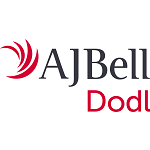Private pensions are a tax-efficient way to invest and save for your retirement and can give you greater control over where your money is invested as you (or with the help of an adviser) decide what different asset classes to invest in from stocks, bonds ETFs, investment trusts and funds. We have tested, ranked, compared and reviewed some of the best SIPP providers and accounts in the UK that the FCA regulates.
AJ Bell: Best for low-cost DIY pension investing

- Investments: Shares, ETFs, bonds & funds
- Minimum deposit: £500
- SIPP account charge: 0.25%
- SIPP Dealing fee: Shares £3.50 – £5, funds £1.50
- GMG rating: (4.4)
- Customer rating: 4.2/5 (844 reviews)
AJ Bell SIPP Review

Name: AJ Bell SIPP
Description: AJ Bell offers the cheapest SIPP account when you compare them against providers that charge a percentage of your portfolio value. You can invest in a wide range of investments, including stocks in more than 20 markets, over 2,000 funds, ETFs, and bonds.
Capital at risk.
Summary
- Investments: Shares, ETFs, bonds & funds
- Minimum deposit: £500
- SIPP account charge: 0.25%
- SIPP Dealing fee: Shares £3.50 – £5, funds £1.50
Fees: AJ Bell offers the cheapest SIPP account when you compare them against providers that charge a percentage of your portfolio value. You can invest in a wide range of investments, including stocks in more than 20 markets, over 2,000 funds, ETFs, and bonds.
Special Offers:
- Up to £500 cashback: Switch your SIPP to AJ Bell and they will pay up to £35 per investment and £100 in exit fees as cash back to cover your costs up to £500.
- £100 gift vouchers: If you refer a friend to AJ Bell that opens an ISA or SIPP with more than £10,000 you both get £100 of One4All gift vouchers.
Pros
- Low SIPP account fees of 0.25% & share dealing commission
- Wide range of shares, bonds and funds
- Ability to add a Junior SIPP for your children
Cons
- High phone dealing charges
-
Pricing
(4.5)
-
Market Access
(4.5)
-
Online Platform
(4)
-
Customer Service
(4.5)
-
Research & Analysis
(4.5)
Overall
4.4Interactive Investor: Best for fixed-fee DIY pension investing

- Investments: Shares, ETFs, bonds & funds
- Minimum deposit: £1
- SIPP account charge: £12.99 per month
- SIPP dealing fee: £3.99 – £5.99
- GMG rating: (4.2)
- Customer rating: 4.2/5 (792 reviews)
Capital at risk
Interactive Investor SIPP Review

Name: Interactive Investor SIPP
Description: One advantage of Interactive Investor’s SIPP is that it offers a flat-fee structure. This means that annual account charges do not increase as your SIPP grows in size. This structure can help those with larger SIPP portfolios save on fees.
Capital at risk.
Summary
- Investments: Shares, ETFs, bonds & funds
- Minimum deposit: £1
- SIPP account charge: £12.99 per month
- SIPP dealing fee: £3.99 – £5.99
Fees: Interactive Investor’s SIPP costs 12.99 a month for new customers, but if you already have a II shares dealing account you can add a SIPP for £10 per month instead of £12.99. Dealing commissions are a free trade every month, then UK Shares and Funds, US Shares charged £7.99 or upgrade to a £19.99 “Super Investor” account 2 free monthly trades and deal for £3.99. Regular investing is free.
Pros
- Flat account fee of £12.99 per month
- £1 minimum deposit makes it easy to get started
- Fixed SIPP account fee that does not increase with your investments
Cons
- Fixed fee expensive for very small accounts below £1,000
-
Pricing
(4.5)
-
Market Access
(4.5)
-
Online Platform
(4)
-
Customer Service
(4)
-
Research & Analysis
(4)
Overall
4.2Hargreaves Lansdown: Best overall DIY pension account

- Investments: Shares, ETFs, bonds & funds
- Minimum deposit: £100
- SIPP account charge: Shares 0.45%, funds 0.45%
- SIPP dealing fee: Shares £5.95 – £11.95, funds £0
- GMG rating: (4.3)
- Customer rating: 3.7/5 (1,304 reviews)
Capital at risk
Hargreaves Lansdown SIPP Review

Name: Hargreaves Lansdown SIPP
Description: We have ranked Hargreaves Lansdown as the best SIPP provider in our 2022 Awards. The main advantage of Hargreaves Lansdown’s SIPP is that it offers access to a vast range of investments. Investors have access to domestic and international equities, over 3,000 funds, bonds, as well as plenty of research and investment tools.
Capital at risk
Summary
- Investments: Shares, ETFs, bonds & funds
- Minimum deposit: £100
- SIPP account charge: Shares 0.45%, funds 0.45%
- SIPP dealing fee: Shares £5.95 – £11.95, funds £0
Fees: Hargreaves Lansdown SIPP costs start at 0.45% of your portfolio value. The account charge for shares is capped at £200 per year. Funds are charged at 0.45% for the first £250,000, then 0.25% between £250k and £1m, then 0.1% between £1-£2m. There is no charge above £2m. There is no charge for buying funds, but shares are charged at £11.95 per deal or £5.95 if you do over 20 deals per month.
Pros
- Widest range of shares, bonds and funds to invest in.
- Get started with as little as £100 or a £25 regular investment
- Share fees capped at £200
- Excellent research & data to help you choose what to invest in
Cons
- Can be expensive for large fund portfolios
-
Pricing
(4)
-
Market Access
(4.5)
-
Online Platform
(4)
-
Customer Service
(4.5)
-
Research & Analysis
(4.5)
Overall
4.3Bestinvest: Good for pension investment advice and low costs

- Investments: Shares, ETFs, funds
- Minimum deposit: £1
- SIPP account charge: 0.2% to 0.4%
- SIPP dealing fee: Shares £4.95, funds £0
- GMG rating: (4)
- Customer rating: 4.2/5 (72 reviews)
Capital at risk
Bestinvest SIPP Review

Name: Bestinvest SIPP
Description: Bestinvest has combined low-cost online investing and share dealing with personalised expert advice to help clients choose the right investments for their portfolio. A good choice for large long-term investors.
Capital at risk.
Summary
- Investments: Shares, ETFs, funds
- Minimum deposit: £1
- SIPP account charge: 0.2% to 0.4%
- SIPP dealing fee: Shares £4.95, funds £0
Fees: Bestinvest SIPP fes are 0.2% for holding ready-made portfolios, above £500,000 it reduces to 0.1%. For other investments, the account fee is 0.4% up to £250k. Dealing commissions £4.95 per online share trade, fund dealing is free.
Pros
- SIPP investment advice and buy/sell recommendations
- Low minimum deposit of £1
- Very low account fees from 0.2% on pre-made portfolios
Cons
- No bonds
-
Pricing
(4)
-
Market Access
(3.5)
-
Online Platform
(4)
-
Customer Service
(4)
-
Research & Analysis
(4.5)
Overall
4Nutmeg: Best managed private pension in 2023
Approved by Nutmeg on the 11 September 2023

- Investments: 5 investment styles
- Minimum investment: £500
- Pension charges: 0.75%-0.45%
- GMG rating: (4)
- Customer rating: 4.4/5 (531 reviews)
Capital at risk. Tax treatment depends on your individual circumstances and may change in the future
Nutmeg won “best private pension” in our 2023 awards as they offer low fees and make it very simple to pick an appropriate portfolio. They also have a great selection of socially responsible funds and are good value for larger pension pots.

Nutmeg Pension Review

Name: Nutmeg Pension
Description: Nutmeg has created five pension styles (portfolios) which have been built by experts and use exchange-traded funds to diversify across stocks, bonds, industries, and countries. This also importantly keeps costs down.
Capital at risk. Tax treatment depends on your individual circumstances and may change in the future.
Summary
- Investments: 5 investment styles
- Minimum investment: £500
- Pension charges: 0.75%-0.45%
Fees: Nutmeg pensions cost 0.75% for their managed portfolios which drops to 0.35% for balances over £100k. For their fixed allocation portfolios, they charge 0.45% dropping to 0.25% for balances over £100k. For all portfolios, there is an additional charge by the investment fund managers of around 0.2% and the market spread on buying and selling portfolios is currently between 0.04% and 0.09%. More information on fees and products can be found here.
Pros
- Low account fee of 0.75%
- Part of J.P. Morgan
- Simple pre-made portfolios
Cons
- £500 minimum investment
- No individual funds
-
Pricing
(4)
-
Market Access
(3.5)
-
Online Platform
(4.5)
-
Customer Service
(4)
-
Research & Analysis
(4)
Overall
4“We’re really pleased to win this award for Nutmeg because it is just rewards rewards for all the hard work that our team puts in back in our Vauxhall office from client services to operations to product to the investment team everybody’s played a partner. We’re really proud to win.”
James McManus
Chief investment officer at Nutmeg
Wealthify: Pension investing from just £50

- Investments: Managed funds
- Minimum investment: £50
- Pension charges: 0.6%*
- GMG rating: (4.2)
- Customer rating: 4.6/5 (2,426 reviews)
Capital at risk. Your tax treatment will depend on your individual circumstances and it may be subject to change in the future.
Wealthify Pension Review

Name: Wealthify Pension
Description: Wealthify’s pension lets you invest in either an original portfolio of investments from the UK and overseas or choose an ethical investment plan made from a blend of environmentally and socially responsible investments.
Capital at risk. Your tax treatment will depend on your individual circumstances and it may be subject to change in the future.
Summary
- Investments: Managed funds
- Minimum investment: £50
- Pension charges: 0.6%*
Fees: Wealthify charges a flat annual fee of 0.6% for their pension. *There are also investment costs of on average 0.16% for original plans and 0.7% for ethical plans. Capital at risk.
Please note: Wealthify is unable to accept any pensions that customers are taking an income from or transfer any pensions with defined benefits or guarantees.
Pros
- Managed pension
- Low minimum deposit of £50
- Low account annual fee of 0.6%*
Cons
- Cannot invest individual shares
-
Pricing
(4.5)
-
Market Access
(4)
-
Online Platform
(4.5)
-
Customer Service
(4)
-
Research & Analysis
(4)
Overall
4.2Moneyfarm: Best digital pension for starting small

- Investments: 7 managed funds
- Minimum investment: £1
- Pension charges: 0.75%
- GMG rating: (3.8)
- Customer rating: 3.5/5 (62 reviews)
Capital at risk
Moneyfarm Pension Review

Name: Moneyfarm Pension
Description: Moneyfarm lets you invest your pension in one of seven ready-made simple and diverse portfolios with different degrees of risk and reward. Users can transfer a pension or setup a new one and Moneyfarm will manage your portfolio based on your retirement target date by reducing the risk as the time approaches.
Capital at risk.
Summary
- Investments: 7 managed funds
- Minimum investment: £1
- Pension charges: 0.75%
Fees: *Moneyfarm pension account fees are scaled between 0.75% for accounts between £500 and £50,000, then above £100k are 0.45% to 0.35%. Average investment fund fees are 0.2% and the average market spread when buying and selling is 0.10%
Pros
- Simple investment options
- Low account fee of 0.75%*
- Easy to use
Cons
- £500 minimum investment
- Cannot invest in individual shares
-
Pricing
(4)
-
Market Access
(3.5)
-
Online Platform
(4)
-
Customer Service
(4)
-
Research & Analysis
(3.5)
Overall
3.8Dodl: Easy to use app-based pension for beginners

- Investments: Shares, ETFs, funds
- Minimum deposit: £1
- Account types: GIA, ISA, Pension, LISA
- Account charge: 0.15%
- Dealing fee: £0
- GMG rating: (4.1)
- Customer rating: 4.0/5 (12 reviews)
Capital at risk
AJ Bell Dodl Pension Review

Summary
- Investments: Shares, ETFs, funds
- Minimum deposit: £1
- Account types: GIA, ISA, Pension, LISA
- Account charge: 0.15%
- Dealing fee: £0
Fees: A Dodl pension costs 0.15% of the value of your investments in each account, per year. This is charged monthly with a minimum of £1.
Pros
- Low cost
- Backed by AJ Bell
- Aimed at beginners
Cons
- Limited investment range
- App only
-
Pricing
(4.5)
-
Market Access
(3.5)
-
Online Platform
(4.5)
-
Customer Service
(4)
-
Research & Analysis
(4)
Overall
4.1❓Methodology: We have chosen what we think are the best private pension accounts based on:
- over 17,000 votes in our annual awards
- our own experiences testing the private pension accounts with real money
- an in-depth comparison of the features that make them stand out compared to alternative private pensions.
- interviews with the private pension provider CEOs and senior management
You can use our comparison of private pension providers to compare account charges, the minimum deposits to get started, and if you have to make your own investment decisions or a fund manager does it for you.
Compare UK Private Pensions
| Private Pension Provider | Pension Account Charges | SIPP or Managed | Minimum Investment | GMG Rating | More Info |
|---|---|---|---|---|---|
 | 0.25% – 0.1% | SIPP | £500 | See Pension Capital at risk |
|
 | 0.45% – 0.25% | SIPP | £1 | See Pension Capital at risk |
|
 | £5.99 a month | SIPP | £1 | See Pension Capital at risk |
|
 | 0.6% | Managed | £50 | See Pension Capital at risk |
|
 | 0.15% | SIPP | £1 | See Pension Capital at risk |
|
 | 0.4% – 0.2% | SIPP | £1 | See Pension Capital at risk |
|
 | 0.75% -0.35% | Managed | £500 | See Pension Capital at risk |
|
 | 0.75% – 0.35% | Managed | £500 | See Pension Capital at risk |
|
How To Choose A Private Pension Provider
The main things to look for when deciding what private pension provider to use are:
- FCA regulation: Always look for regulated providers that are part of the Financial Services Compensation Scheme, which offers 100% protection should the pension company fail. In addition, if you’ve received bad advice in relation to your pension, you could be eligible to claim up to £85,000.
- Cold calls: Watch out for providers – or advisers – that contact via cold calls (which are now illegal) or unsolicited marketing material. Always take the advice of a fully regulated independent financial adviser. Always check the list of regulated and approved list of providers on the Financial Conduct Authority’s website: https://www.fca.org.uk/firms/financial-services-register
- Investment options: The amount of fund options available are important; look for providers offering options that meet your risk appetite. If you are interested in a self-invested personal pension, which allows more freedom to invest in individual stocks, make sure the provider has the appropriate expertise and range suited to your preferred portfolio.
- Contribution levels: Make sure you ask about minimum contribution levels and that you understand fees and charges.
- Exit fees: Many firms will charge exit fees if you want to transfer to a new provide, which can often be expensive.
Related guide: How to start a private pension
⚠️ FCA Regulation
All pension providers that operate in the UK must be regulated by the FCA. The FCA is the Financial Conduct Authority and is responsible for ensuring that UK pension provider platforms are properly capitalised, treat customers fairly and have sufficient compliance systems in place. We only feature pension accounts that are regulated by the FCA, where your funds are protected by the FSCS.
Best Performing Private Pension Funds
When you compare the performance of these private pension funds it’s important to remember that historical results are absolutely not indicative of future performance.
Managed private pension performance is heavily correlated to how well the global economy is performing. So if the overall stock markets are performing well, so will your pension. But, if the economy is in recession or a “bear market” the performance of your pension will go down.
- Related Guide: Best SIPP Providers For DIY Retirement Investing Compared
The performance of your pension fund over its lifetime can make a great deal of difference to the size of your final pension pot, and in turn to the income and capital that you will be able to call on when you retire.
The performance of individual funds can vary greatly for example Sottish Equitable’s Technology ARC Pension fund has grown at an annualised rate of 23.16% over the last ten years, according to Morningstar data.
Whilst, the Zurich JP Morgan New Europe Pension fund has lost -36.58% over the same period.
These kinds of divergences mean the choice of pension fund could be crucial to the performance or growth of your pension pot. But what should an investor be looking for in a pension fund.
But first, what is a pension fund?
A pension fund is a tax-efficient savings plan designed to grow over the long term. Investors put money into their pensions over their working lifetime, in expectation of creating a pot of investments and cash that they can draw on in later life.
Pension funds are often made up of a portfolio of assets that can include stocks and shares bonds other funds and commercial property.
Pension funds are often managed with long-term growth in mind, but they can also be thematic focusing on say European smaller companies, global technology or government bonds.
That means that investors are faced with making both an asset allocation choice and a choice about the manager /pension fund they will invest in.
According to data from fund research specialists Morningstar there are 1431 pension funds available to UK investors that focus on Global Equities.
Funds in this sector have enjoyed some of the best performance over the last 10- years with 15 funds producing returns of 14 % or greater. Five of these funds (all of which are managed by Scottish Equitable) returned more than 22% in that time frame.
By comparison, there are 160 funds focusing on Global Fixed Income Securities, even the best performer among this cohort, which again is a fund managed by Scottish Equitable, the Overseas Corporate Bond Tracker, returned just +3.71% over the last decade.
Best performing individual pension funds
Out of just over 14,000 pension funds in the Morningstar database it’s Scottish Equitable’s Technology ARC Pension fund that takes the top spot with an impressive 23.16% of annulaised returns since 2013.
The fund focuses on large-cap growth stocks and was established back in November 2011, it manages just under £590 million, as of March 31st 2023.
Away from the Scottish Equitable stable FIL Inurance’s Global Technology Fund returned an annualised 20.18% in the last decade, whilst AXA Framlington’s Global Tech ZP Pension Fund has returned an annualised 18.39% over the last 10 years.
The best performing pensions funds over the last 10 years
| Fund Name | 3 Yr Std Dev | YTD Return GBP | 1 Yr Return % | 3 Yr Anlsd % | 5 Yr Anlsd % | 10 Yr Anlsd % |
| Scottish Equitable Technology ARC Pension Fund | 19.9 | 35.15 | 22.67 | 14.98 | 21.88 | 23.05 |
| Scottish Equitable Technology SH Pension Fund | 19.86 | 34.28 | 21.83 | 14.19 | 21.05 | 22.22 |
| Scottish Equitable Technology 1.00 SC Pension Fund | 19.89 | 34.52 | 21.82 | 14.19 | 21.04 | 22.21 |
| Scottish Equitable Technology SC Pension Fund | 19.85 | 34.27 | 21.82 | 14.19 | 21.04 | 22.21 |
| Scottish Equitable Technology Pension Fund | 19.89 | 34.51 | 21.82 | 14.19 | 21.04 | 22.21 |
| Global Technology Fund GBP Shares | 15.54 | 22.26 | 12.16 | 14.29 | 17.83 | 20.05 |
| Zurich AXA Framlington Global Technology ZP Pension Fund | 18.54 | 25.18 | 8.35 | 7.49 | 13.18 | 18.59 |
| OMR AXA Framlington Global Technology SP | 20.39 | 27.81 | 7.96 | 6.61 | 12.53 | 18.38 |
| Phoenix Wealth AXA Framlington Global Technology Pension Fund | 18.6 | 24.74 | 7.76 | 6.94 | 12.62 | 18.11 |
| Phoenix Wealth AXA Framlington Global Technology S3 Pension Fund | 18.6 | 24.74 | 7.76 | 6.94 | 12.62 | 18.11 |
Source: Morningstar data
If we look at the database for the performance of pension funds over 5 years we see little change, with technology-focused funds occupying the top spots with a 5-year returns of just over 20%.
Best performing pension funds by asset class
Global Technology funds have been the best-performing asset class over the last 10 years They are followed by North American Equity funds and Japanese Equities.
However, there is quite a big gap between the best-performing Japanese equity fund, the Sanlam Invesco Perpetual Japan Smaller Companies Pension Fund, and the other 338 funds in the sector.
The returns among North American equity funds are far more evenly distributed with the range of 10-year returns among the top 20 funds in a spread between 15.38% and 17.08%.
Equity funds seem to have outperformed their fixed-income peers over the last 10 years.
For example, the Aviva Pension Capital International Global High Income OpportunitiesFund is the best performer, among global high-yield funds but it has only returned an annualised 6.21% in that time frame.
The top 10 Global High Yield Pension Funds over the last 10 years
| Fund Name | 3 Yr Std Dev | YTD Return GBP | 1 Yr Return % | 3 Yr Anlsd % | 5 Yr Anlsd % | 10 Yr Anlsd % |
| Aviva Pension Capital International Global High Income Opport Pension Fund | 5.79 | 1.46 | -0.7 | 1.99 | 3.91 | 6.25 |
| OMR Jupiter Emerging Market Debt | 7.97 | 0.06 | -1.42 | -2.52 | 1.46 | 4.29 |
| Canlife CT Emerging Markets Bond Pn PS4 | 7.68 | -1.52 | -4.05 | -3.28 | 0.57 | 3.54 |
| OMR Merian Emerging Market Debt Pension | 7.99 | -0.47 | -2.17 | -3.26 | 0.68 | 3.5 |
| Scottish Equitable Baillie Gifford High Yield Bond ARC Pension Fund | 8.1 | 4.52 | 4.14 | -1.27 | 0.89 | 3.17 |
| Ninety One Emerging Markets Local Currency Debt S6 | 7.51 | 2.72 | 1.79 | 0.87 | 3.32 | 2.87 |
| RLP Global High Yield Bond Pension Fund | 8.37 | 4.16 | 3.02 | -1.32 | 0.72 | 2.51 |
| SJP International Corporate Bond Acc Pen | 6.69 | 4.29 | 4.35 | -0.99 | 0.47 | 2.46 |
| Standard Life Assurance SLI Global High Yield Bond B Pension Fund | 6.77 | 5.55 | 6.12 | -0.34 | 0.75 | 2.1 |
| Ninety One Emerging Markets Local Currency Debt S14 | 7.5 | 2.19 | 1.03 | 0.12 | 2.54 | 2.1 |
The best European Equity (ex the UK) funds have produced ten year returns of 12.96% the worst performer among the 683 funds in this class delivered just 1.94%.
The Top Ten European Equity (Ex UK) Pension Funds over the last 10 years
| Fund Name | 3 Yr Std Dev | YTD Return GBP | 1 Yr Return % | 3 Yr Anlsd % | 5 Yr Anlsd % | 10 Yr Anlsd % |
| Sanlam GLG Continental Europe 7 Pension Fund | 16.35 | -2.17 | 18.09 | 10.74 | 13.67 | 12.96 |
| ReAssure LG Man GLG Cont Euro Gro | 17.35 | 10.39 | 15.47 | 3.98 | 6.5 | 12.68 |
| Aviva BlackRock Continental European S6 Pension Fund | 19.46 | 13.64 | 20.9 | 11.2 | 11.96 | 12.17 |
| Aviva BlackRock European Dynamic S6 Pension Fund | 18.98 | 10.72 | 19.73 | 9.35 | 9.95 | 12.03 |
| Man GLG Continental European Growth Fund | 17.28 | 10.17 | 15.17 | 3.46 | 5.38 | 11.68 |
| SIP Janus Henderson European Smaller Companies | 18.13 | -0.46 | 7.12 | 6.27 | 5.89 | 11.56 |
| OMR Janus Henderson European Smaller Companies SP | 18.13 | -0.55 | 7.04 | 6.22 | 5.82 | 11.48 |
| Scottish Equitable Blackrock European Dynamic ARC Pension Fund | 19.3 | 10.18 | 18.92 | 7.87 | 9.35 | 11.34 |
| LV= BlackRock European Dynamic Series 2 Pension Fund | 19.05 | 10.9 | 19.29 | 8.2 | 9.18 | 11.25 |
| HLL BlackRock European Dynamic Pen 50 | 19.1 | 10.09 | 18.79 | 7.8 | 9.24 | 11.24 |
Source: Morningstar data
The best commodity and energy-focused funds have returned between 5.00% and 7.61% per annum over the last decade, whilst the best property-centric pension funds have generated 9.06%
The Top Ten Commodity/Energy Pension Funds over the last 10 years
| Fund Name | 3 Yr Std Dev | YTD Return GBP | 1 Yr Return % | 3 Yr Anlsd % | 5 Yr Anlsd % | 10 Yr Anlsd % |
| OMR BlackRock Natrl Res S2 Pension Acc | 21.7 | -4.96 | -0.05 | 22.47 | 9.68 | 7.55 |
| OMR BlackRock Natrl Res Pension Acc | 21.7 | -5.47 | -0.79 | 21.52 | 8.86 | 6.74 |
| Aviva JP Morgan Natural Resources S6 Pension Fund | 19.66 | -4.74 | 2.03 | 21.31 | 10.94 | 6.2 |
| Aviva Pension JPM Natural Resources AP Pension Fund | 19.75 | -4.69 | 2.2 | 20.95 | 10.87 | 6.08 |
| Aviva Pension JP Morgan Natural Resources Pension Fund | 20.95 | -4.64 | 2.12 | 20.78 | 10.41 | 6.05 |
| Ninety One Global Gold S6 | 28.06 | -4.06 | 14.61 | -8.72 | 12.71 | 5.85 |
| Zurich JP Morgan Natural Resources ZP Pension Fund | 19.76 | -5.13 | 1.55 | 20.17 | 10.17 | 5.4 |
| FL/JPM Natural Resources AP Inet Pension Fund | 19.75 | -5.19 | 1.45 | 20.17 | 10.18 | 5.35 |
| Scottish Equitable JPM Natural Resources ARC Pension Fund | 19.74 | -5.2 | 1.43 | 20.03 | 10.06 | 5.31 |
| Zurich JP Morgan Natural Resources AP Pension Fund | 19.75 | -5.19 | 1.45 | 20.05 | 10.07 | 5.3 |
Source: Morningstar data
Best performing pension fund managers
The best performing pension managers over the last 10 years are those that have had exposure to global technology and or North Amertican equities.
Simply because of the growth in tech and US equity markets for example the Nasdaq 100 index is up by 377% since September 2013.
As we noted earlier Scottish Equitable (which is owned by Dutch insurer Aegon) manages several top-performing technology funds.
Overall the firm manages 1385 dedicated pension funds 600 of which have returned at least an annualised 1.75% over the last decade.
Other managers that were well represented in the list of best-performing pension funds across all asset classes include
AXA Framlington in combination with both Zurich and Phoenix Wealth
OMR Quitler and OMR Janus Henderson.
UK insurer Aviva, who have funds managed in conjunction with Baillie Gifford, JP Morgan, Investec, and AXA Framlington, as well as under its own banner.
Key points to consider when choosing pension funds
Of course this brings us to key points about fund and manager selection.
Firstly, previous performance is no guarantee of future returns and secondly having a good manager but the worst asset allocation is not likely to be a successful route to long-term capital growth.
Consistency of returns and the effects of compounding will help to build your pension pot over time. Trying to identify which managers and funds are likely to deliver that over the next 25 to thirty years is nigh on impossible.
So investors need to have pensions that allow flexibility within their fund selection.
Picking funds is also not made any easier by inconsistent data and a variety of methods that are used to measure fund performance and risk metrics, and the periods over which they are tracked, by the principal fund data sites.
Screening tools will be useful for compiling a short list of funds and managers but you will likely need to dig down further into each manager and fund before you can make your fund selection and asset allocation decisions.
Private Pension FAQs:
When you invest in a private pension, an administrator is responsible for any payments into your pension. They will also reclaim basic rate tax relief and process any income withdrawals that you make.
SIPP providers such as Hargreaves Lansdown, AJ Bell and PensionBee administer pensions as part of the service. Other providers use third party administrators to manage this function on their behalf, for example Barclays SIPP uses AJ Bell.
Third-party administrators also usually take care of workplace pensions on behalf of employers.
All third-party administrators (and the administration of SIPP providers if done in-house) are regulated by the Financial Conduct Authority which expects firms to clearly establish roles and responsibilities and have procedures to ensure all employees are properly trained and competent.
If you have concerns or complaints about the way your pension is administered, you need to contact the Pensions Ombudsman.
Should the administrator fail completely your pension will be protected by the Financial Services Compensation Scheme.
Further reading: Can I change SIPP administrators?
Yes. If you feel that you are paying too much in fees to your current private pension provider, or they do not offer the flexibility and fund choices you need, it might be worth transferring. However, not all schemes accept transfers.
You can usually transfer a defined benefit pension to a new pension scheme at any time up to one year before the date of when you’re expected to start taking your pension. Some schemes will let you transfer only a part of your benefits. You’ll need to check with your provider to see if they offer this option.
If you are considering leaving your DB scheme, before you can start the advice process, you need to get a transfer value from your scheme. The transfer value is set for three months, so line up an adviser ahead of time to avoid having to make rushed decisions. If you don’t complete the transfer process within the three-month period for which the transfer value is guaranteed, you might have to apply for another value, which will likely incur a cost.
When you’ve transferred to a new scheme, you’ll usually have given up all benefits under the old scheme, and when you start taking your pension, you can’t usually move your pension elsewhere.
If you take regulated financial advice, the IFA bears the risk of any poor decisions rather than you.
Defined benefit scheme members must seek regulated independent financial advice before taking a transfer out if their pot is worth more than £30,000. Thousands of DB members have received bad advice, resulting in them losing their valuable DB pensions. The FCA says good advisers will ask you about current financial circumstances and aims; priorities and spending plans in retirement; other pensions, assets and debts; and your health and your family’s health.
As with DB members, if your DC scheme has ‘safeguarded benefits’ such as a guaranteed annuity rate, and the value of these benefits is more than £30,000, you’ll have to get regulated financial advice before you can transfer.
If you have small pension pots worth less than £10,000, consider keeping them where they are. This is because if you’re considering taking a small pot lump sum at some point before you retire, by withdrawing the whole amount, this will not affect any future pension contributions.
It is almost always better to remain in your occupational or workplace pension because you enjoy contributions from your employer. However, if you are in a defined benefit pension and approaching retirement, you will not be able to take the same flexibilities as those offered to DC members. You must seek financial advice before switching out of DB, and remember that you will be giving up protection of an income for life. Even if your employer is vulnerable to insolvency, your DB pension is protected by the Pension Protection Fund; something not extended to DC funds.
If you are a member of several workplace DC pensions, it might make sense to consolidate these in one place, since your scheme is not transferred automatically when you change jobs.
It may also make sense to transfer your pension to a specialist provider if you are moving overseas. Not all schemes can take contributions from abroad, so you need to fund a qualifying recognised overseas pension scheme.
Private pensions are flexible on death, which means you can nominate a recipient to receive your retirement income.
If you die before your 75th birthday and haven’t started drawing your pension, it can be passed to your beneficiaries tax-free. The beneficiaries will be able to choose how they draw the income (lump sum, drawdown or annuity).
If you die before your 75th birthday, and are already receiving your pension, it will impact how beneficiaries can access the pot. If you took a lump sum and you have remaining cash in your bank account outside of your pension, this will be counted as part of your estate. If you are using drawdown, your beneficiaries can access whatever’s left in your pension entirely tax-free.
If you die after your 75th birthday, your beneficiaries will pay income tax on any pensions you leave behind, at their marginal rate.
If you are not confinement that you fully understand private pensions then yes, you should talk to an independent financial advisor. The market for private pensions is huge, and with so much choice, finding the right plan can be confusing. It is worth considering taking independent advice to find the most appropriate pension for you.
However, there are plenty of well-known companies offering good value private pensions . These include Nutmeg, Wealthify and moneyfarm. Some will offer access to a wide range of ways to invest, while others will keep it more basic. Typically, these firms charge around 0.5% of your pot to run the plan. They offer access to tracker funds which deliver returns in line with how the main indexes are performing your contributions are spread across bonds, stocks, commodities and property. They will also diversify across geographies providing access to global markets.
You can also invest into a self-invested personal pension (SIPP), which allows you to choose exactly how your money is invested.
Yes, you can invest in a private pension and a Lifetime ISA (LISA) simultaneously.
Individuals aged over 18 and under 40 can consider opening a LISA, which is a savings account designed solely to buy a first home or to provide a retirement income.
LISAs are tax-advantaged, so you won’t pay tax, capital gains, or dividend tax on money you take out, but contributions are made after income tax, and they are subject to inheritance tax.
LISAs are also restricted to a maximum £4,000 a year contribution limit, which goes towards the £20,000 ISA contribution cap. You can only withdraw once you reach 60 or if the money is to purchase a first property. Unauthorised withdrawals are subject to a 20% charge.
Further reading: Compare the best lifetime ISAs here
The State pension is paid by the Government to all those with at least 10 years of National Insurance Contributions. A private pension is entirely separate from the State pension and consists of contributions you have made.
To receive the maximum State pension amount – currently £179.60 per week (2021/22) or £9,339.20 per year, you need to have 35 ‘qualifying’ years.
Couples entitled to the full state pension receive a maximum of £359.20 per week or £18,678.40 per year as of 2021/22.
Given the relatively low level of income from the State pension, those who also save into a private pension will most likely be far better off. In addition, you can draw from your private pension from age 55, but the State pension is only available from age 66 (rising to 67 from 2028). There is also a lot of flexibility available with private pensions, giving you the chance to grow your money (however, investments can fall as well as rise).

Richard Berry
This article contains affiliate links which may earn us some form of income if you go on to open an account. However, if you would rather visit the pension provides via a non-affiliate link, you can view the product pages directly here:


